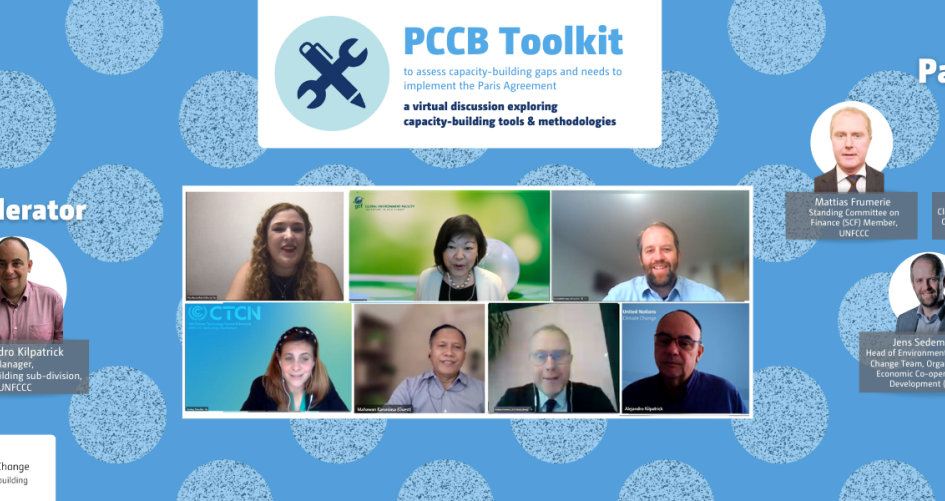The Paris Committee on Capacity-building (PCCB) hosted a virtual discussion exploring capacity-building tools and methodologies on 15 March 2022.
In conversation with -
- Jens Sedemund, Head of Environment and Climate Change Team at the Organisation for Economic Co-operation and Development (OECD)
- Mattias Frumerie, Member of the Standing Committee on Finance (SCF) of the UNFCCC
- Nadège Trocellier, Climate Technology Specialist at the Climate Technology Centre and Network (CTCN) of the UNFCCC
- María del Pilar Bueno Rubial, Research Coordinator at Impulsouth
- Chizuru Aoki, Lead Environmental Specialist at the Global Environmental Facility (GEF)
PCCB sought to catalyze discussions about capacity-building tools and methodologies in the context of different themes (finance, technology, adaptation, and transparency) as well as how donors can mobilize such capacity-building tools and methodologies. At the same time, the event was also mobilized to bring awareness of the recently launched PCCB Toolkit to a wider audience of climate-related capacity-building stakeholders – experts, practitioners, and organizations.
Concept note
Presentation
Outcomes article



